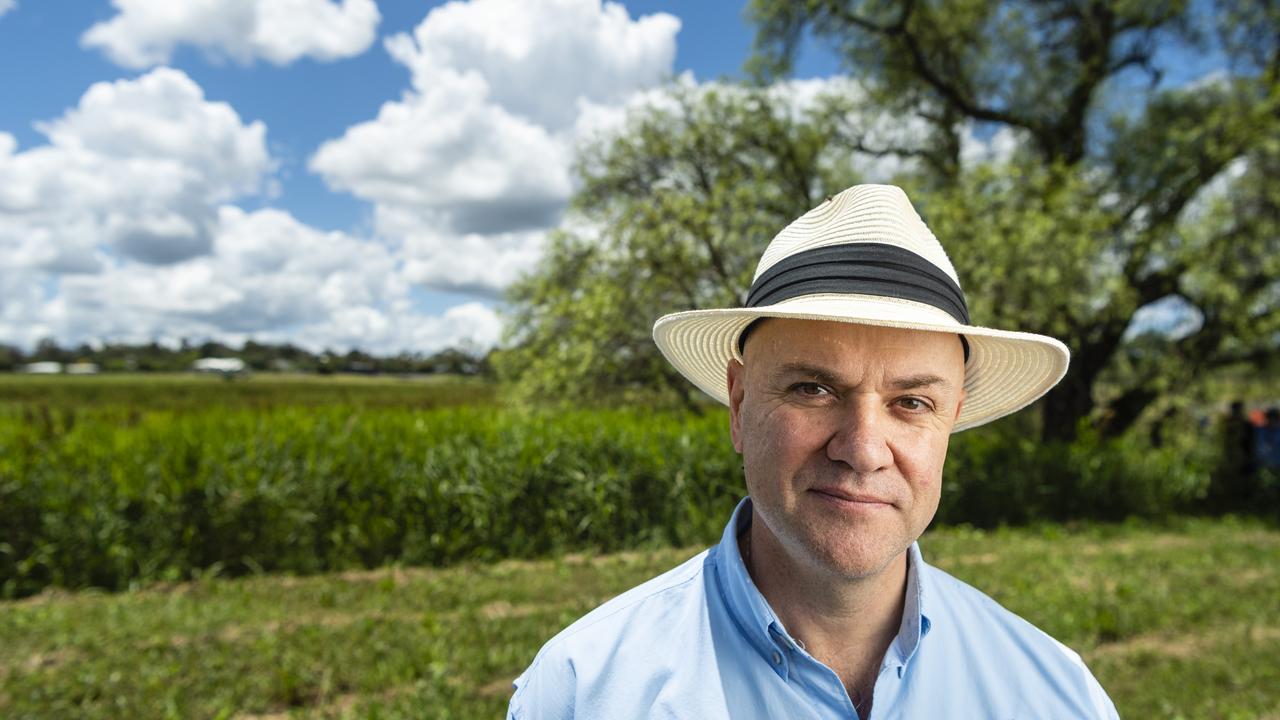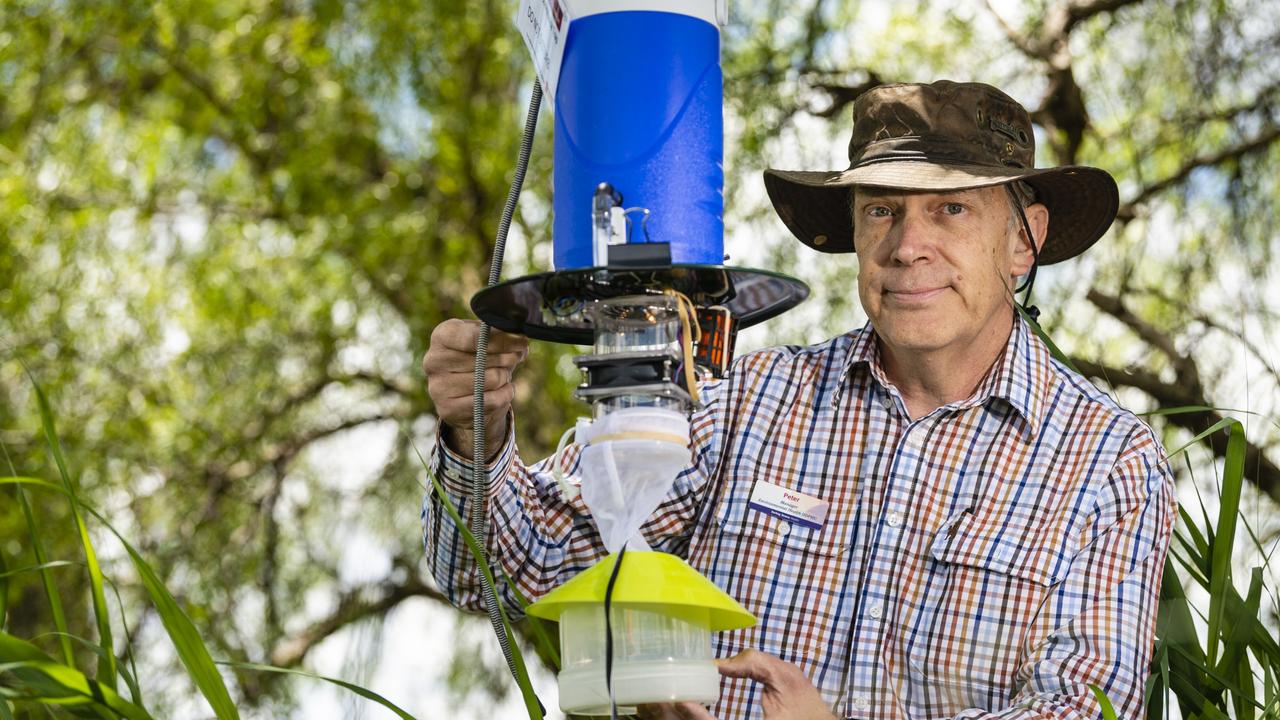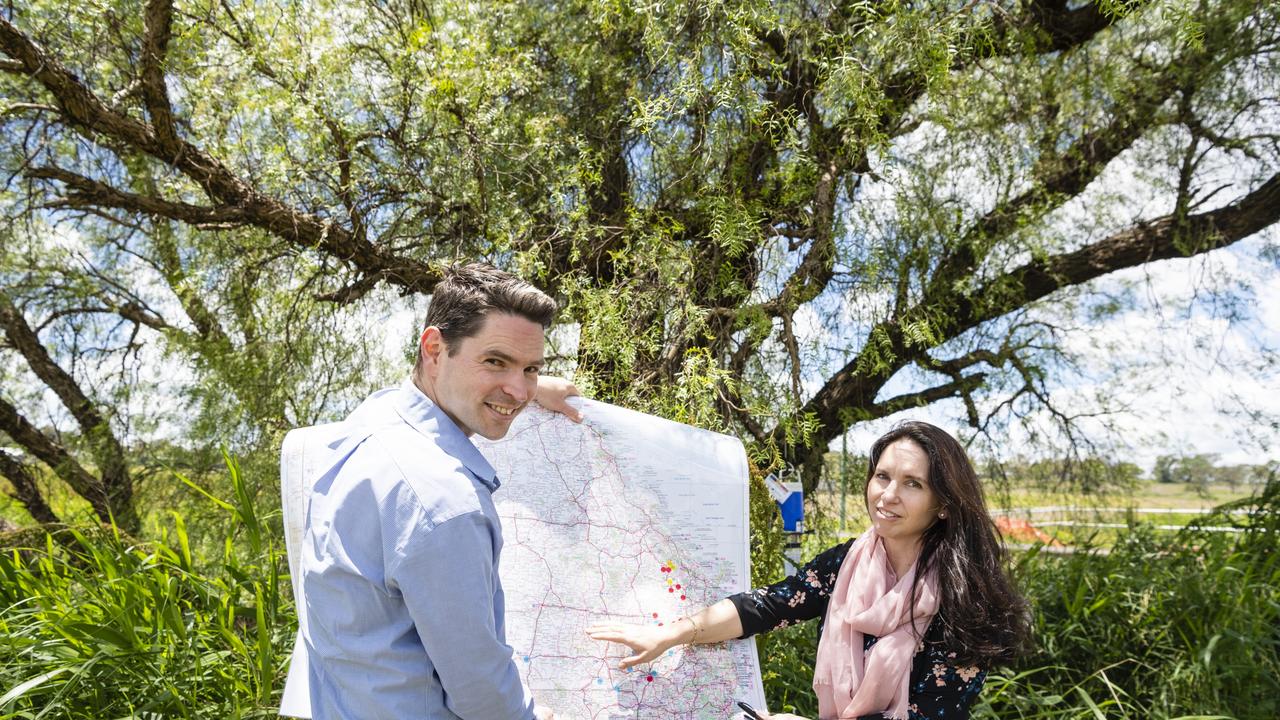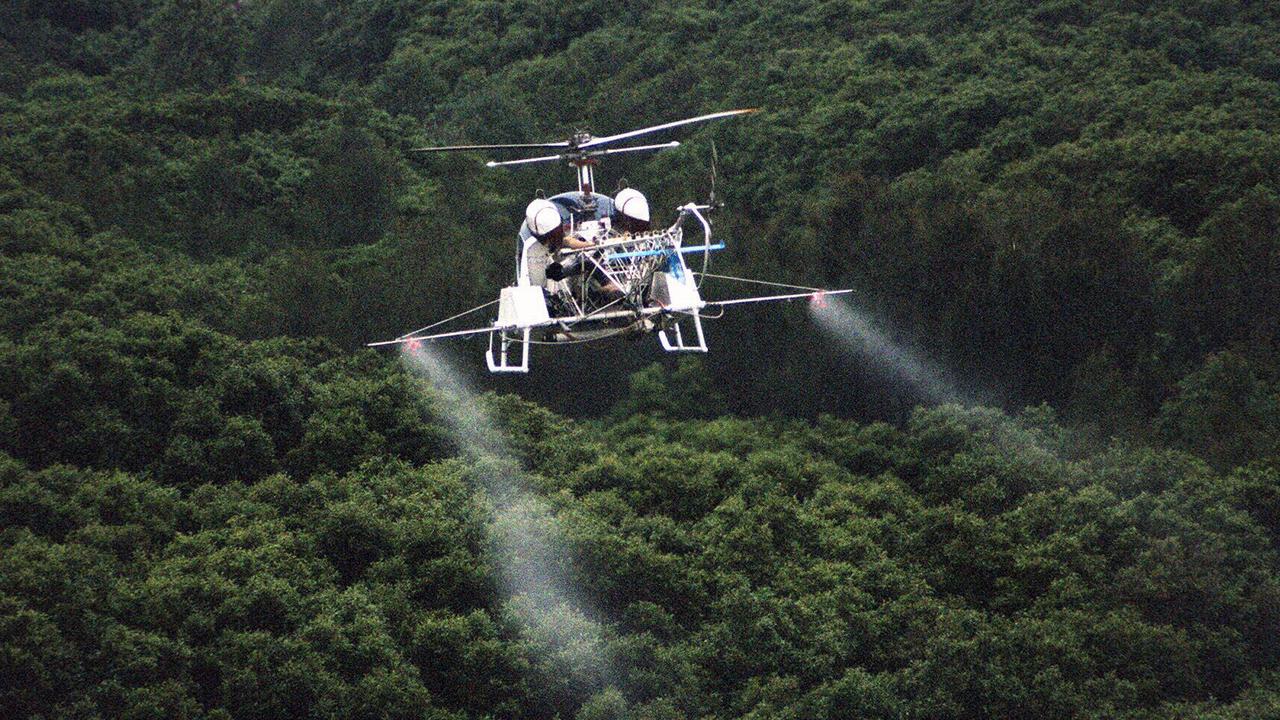‘Disease burden’: Public put on alert for mosquito-borne virus
Despite the state’s chief health officer’s visit to Toowoomba on Monday regarding the threat of the Japanese encephalitis virus, council has confirmed it has no plans to commence spraying.
News
Don't miss out on the headlines from News. Followed categories will be added to My News.
Queensland’s chief health officer is urging residents to remain vigilant due to the detection of Japanese encephalitis viruses in the state.
Five cases of JEV was detected in humans in southern Queensland in the past 12 months, as well as 42 nationally.

The virus can only spread to humans through the bite of a mosquito after it has bitten an infected pig or wading bird and typically takes five days a human is bitten for symptoms to appear.
“Last Summer we saw five cases in southern Queensland west of the divide including one person who sadly died,” Dr Gerrard said, speaking outside Toowoomba on Monday.
“We are concerned as summer approaches we will see further cases of JEV in Queensland.”
Severe cases could result in inflammation of the brain, a sudden onset of high fevers, chills, headaches, disorientation, paralysis and coma, with one third of severe cases resulting in death.
But the chief health officer said 99 per cent of the people affected had no or mild symptoms including headaches, abdominal pain and vomiting.

Director of public health and community medicine for Darling Downs Health Dr Liam Flynn said the public health team spent months rolling out traps in waterways and public areas across the region.
“This is to help us gain more information about the types of mosquitoes and what diseases those mosquitoes might be carrying,” he said.
“Please don’t touch the traps, but know they are there so we can understand the burden of the disease we are facing at the moment.”
While it was not yet clear which species were responsible for transmission of the disease, Dr Flynn said the mosquitoes caught would be analysed at a lab, as well as the infections they are carrying.
Drawn to warm and wet weather conditions and with summer fast approaching, there are concerns mosquito numbers will increase, as well as the threat of mosquito-borne diseases.
Dr Flynn said while Toowoomba Regional Council was involved in vector control and was “part of the process to prevent people from getting sick” through spraying, he believed personal protection was crucial.
These precautionary measures include avoiding mosquito activity particularly during dusk and dawn, covering up with light-coloured and loose fitting clothing and using repellent which contains diethyltoluamide (DEET), picaridin or oil of lemon eucalyptus.

Dr Gerrard said while there were limitations on vaccine supply and delays in obtaining additional vaccines, Australia had secured 30,000.
He said people who were at high-risk of exposure would be prioritised to receive a vaccination.
This includes people who live or work in Balonne, Goondiwindi, South Burnett, North Burnett, Quilpe, Western Downs and Millmerran.
People who work or live near piggeries, in the Torres Strait or Northern Peninsula area of Cape York and directly with mosquitoes are also encouraged to be vaccinated.
The virus cannot be transmitted from person to person, from other animals or by consuming pork.
It has not been detected in Queensland since before winter, but as it gets warmer, it is expected numbers may increase.

TRC has no plans to spray despite CHO’s concerns
Despite the state’s chief health officer’s visit to Toowoomba on Monday regarding the threat of the Japanese encephalitis virus, the Toowoomba Regional Council has confirmed it has no plans to commence spraying.
“The recent rain and warmer temperatures have provided ideal breeding conditions for mosquitoes, but numbers do not warrant council taking wider control measures,” TRC councillor Tim McMahon said.
“Council is working with other local authorities to understand what control options could be available if the problem persists.”

Mr McMahon said residents could reduce mosquito breeding areas by emptying containers of water including pet bowls, wading pools, buckets, birdbaths and ponds without fish.
He said attending to blocked drains, gutters, overgrown vegetation and ensuring there is gauze on rainwater tanks would also prevent being bitten.
“Personal protection also is important to reduce the chances of being bitten by mosquitoes,” he said.
“Mosquitoes not only inflict a nasty bite but can carry serious diseases including Ross River virus, Murray Valley encephalitis and Dengue fever. Mosquitoes can cause heartworm in dogs.”
It comes after five cases of JEV was detected in humans in southern Queensland last summer, with one case proving fatal.
During his visit to Toowoomba on Monday, Queensland chief health officer Dr John Gerrard encouraged people at high-risk of exposure to be vaccinated against JEV.









